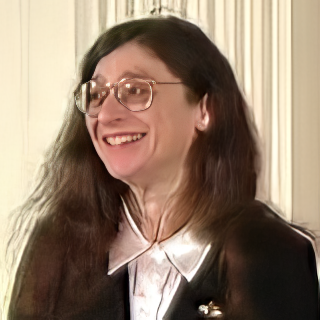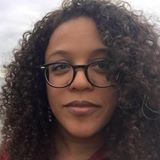Related Research Articles
The Entomological Society of America (ESA) was founded in 1889 and today has more than 7,000 members, including educators, extension personnel, consultants, students, researchers, and scientists from agricultural departments, health agencies, private industries, colleges and universities, and state and federal governments. It serves the professional and scientific needs of entomologists and people in related disciplines. To facilitate communication among members, the ESA is divided into four sections based on entomological interests, and six branches, based on geographic proximity. The national office is located in Annapolis, Maryland.

The Asian giant hornet or northern giant hornet, including the color form referred to as the Japanese giant hornet, is the world's largest hornet. It is native to temperate and tropical East Asia, South Asia, Mainland Southeast Asia, and parts of the Russian Far East. It was also found in the Pacific Northwest of North America in late 2019 with a few more additional sightings in 2020, and nests found in 2021, prompting concern that it could become an invasive species. However, by the end of the season in November 2022, there were no confirmed sightings in North America at all, suggesting they may have been eradicated in that region.

Charles William Woodworth was an American entomologist. He published extensively in entomology and founded the Entomology Department at the University of California, Berkeley. He was the first person to breed the model organism Drosophila melanogaster in captivity and to suggest to early genetic researchers at Harvard its use for scientific research. He spent four years at the University of Nanking, China, where he effected the practical control of the city's mosquitoes. He drafted and lobbied for California's first insecticide law and administered the law for 12 years. The Pacific Branch of the Entomological Society of America named its annual career achievement award the C. W. Woodworth Award.

May Roberta Berenbaum is an American entomologist whose research focuses on the chemical interactions between herbivorous insects and their host plants, and the implications of these interactions on the organization of natural communities and the evolution of species. She is particularly interested in nectar, plant phytochemicals, honey and bees, and her research has important implications for beekeeping.
St Ivo Academy is an academy secondary school and part of Astrea Academy Trust, with sixth form in St. Ives, Cambridgeshire, originally St Ivo School before being taken by Astrea.

Naomi E. Pierce is an American entomologist and evolutionary biologist who studies plant-herbivore coevolution and is a world authority on butterflies. She is the Hessel Professor of Biology and Curator of Lepidoptera in the Department of Organismic and Evolutionary Biology at Harvard University.
Lynn Kimsey is an entomologist, taxonomist, director of the Bohart Museum of Entomology and professor of entomology at the University of California, Davis since 1989. Her specialties are bees and wasps; and insect diversity and evolution.
Marla Spivak is an American entomologist, and Distinguished McKnight University Professor at the University of Minnesota specializing in apiculture and social insects.
Melville Harrison Hatch (1898–1988) was an American entomologist who specialized in the study of beetles. His long career at the University of Washington was highlighted by the publication of the seminal, five-volume work Beetles of the Pacific Northwest. Hatch is responsible for the identification and naming of 13 species.

Margaretta Hare Morris was an American entomologist. Morris and the astronomer Maria Mitchell were the first women elected to the American Association for the Advancement of Science in 1850. She was also the second woman elected to the Academy of Natural Sciences of Philadelphia in 1859, after Lucy Say.
Louise M. Russell was a US Department of Agriculture entomologist renowned for her expertise in insect identification and research on using parasites for biocontrol.

Walter Soares Leal is a Brazilian biochemist and entomologist who is known for identifying pheromones and mosquito attractants, and elucidating a mechanism of action of the insect repellent DEET.

Jessica Lee Ware is a Canadian-American evolutionary biologist and entomologist. She is the associate curator of invertebrate zoology at the American Museum of Natural History in New York City. In addition, she is a principal investigator at the Sackler Institute for Comparative Genomics and an associate professor for the Richard Gilder Graduate School.
Angharad M. R. Gatehouse is an entomologist in the UK. Gatehouse is Professor of Invertebrate Molecular Biology at Newcastle University, is on the Council of the International Congress of Entomology, and is the Director of Expertise for BioEconomy.

Esther Ndumi Ngumbi is a Kenyan entomologist and academic who is currently Assistant Professor of Entomology and African-American Studies at the University of Illinois at Urbana–Champaign. She was awarded the 2018 Society for Experimental Biology Presidential Award.
Maria Alma Solis is an entomologist at the Systematic Entomology Laboratory (SEL) of the Agricultural Research Service of the U.S. Department of Agriculture.
Thomas Wallace Scott is an American tropical infectious disease epidemiologist.

Henry Yemisi Fadamiro is a Nigerian-American entomologist and academic administrator with research into chemical and physiological mechanisms of plant-insect and tritrophic interactions. He is the co-founder of the International Association of Black Entomologists, IABE. He is a fellow of the Royal Entomological Society, the African Academy of Sciences, the Nigerian Academy of Science, and a member of the National Academy of Inventors.
Li Liying is a research fellow at the Institute of Zoology of Guangdong Academy of Sciences. She has developed pest control techniques that are used to treat millions of hectares of crops and forests worldwide. She has published more than 110 papers and 9 books.
References
- 1 2 "Michelle Samuel-Foo Is the First African American to Win a Major Entomological Award". The Journal of Blacks in Higher Education. 2020-06-12. Retrieved 2020-08-29.
- 1 2 3 4 5 6 7 8 "Memoirs of Black Entomologists | Entomological Society of America". www.entsoc.org. Retrieved 2020-08-29.
- 1 2 "55 CFCS 2019 República Dominicana". www.cedaf.org.do. Retrieved 2020-08-29.
- ↑ Samuel-Foo, Michelle Susan (2003). Genetic analyses of Hessian fly resistance in KS 94U275. OCLC 56497943.
- 1 2 3 "Michelle Samuel-Foo to Deliver 2020 ESA Founders' Memorial Lecture | Entomological Society of America". www.entsoc.org. Retrieved 2020-08-29.
- ↑ "BOARD OF DIRECTORS". CFCS. Retrieved 2020-08-29.
- ↑ "Dr. Michelle Samuel-Foo | Alabama State University". www.alasu.edu. Retrieved 2020-08-29.
- ↑ "New Garden and Entomology Lab Coming to Campus". HBCU Sports Forums. 10 July 2018. Retrieved 2020-08-29.
- 1 2 Insider, The (2020-03-12). "ASU's Samuel-Foo is New President of the Entomological Society of America's Southeastern-Branch!". TheMontgomeryInsider. Retrieved 2020-08-29.
- ↑ "New Entomology Professor | UPAA". www.upaa.org. Retrieved 2020-08-29.
- ↑ "MICHELLE SAMUEL-FOO". Diverse. 2020-04-16. Retrieved 2020-08-29.
- ↑ Grijalva, Raul M. (2020-06-25). "H.R.6761 - 116th Congress (2019-2020): Murder Hornet Eradication Act of 2020". www.congress.gov. Retrieved 2020-08-29.
- ↑ Visram, Talib (2020-05-14). "The government may have bungled the coronavirus, but it wants to get a head start on murder hornets". Fast Company. Retrieved 2020-08-29.
- ↑ Beitsch, Rebecca (2020-06-25). "Lawmakers weigh methods to battle Asian 'murder hornets' found in US". The Hill . Retrieved 2020-08-29.
- ↑ "Written Statement of Proposed Testimony" (PDF). Congress.